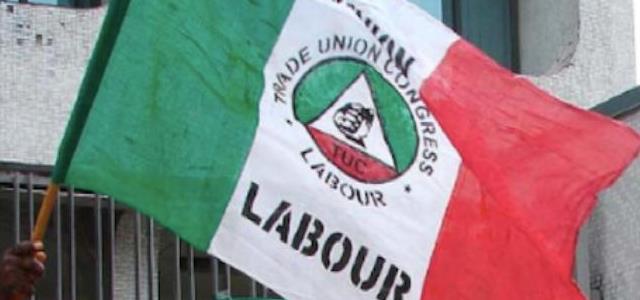 The Nigerian labour congress NLC and its sister labour union the trade union congress TUC are used the occasion of the 2016 worker’s day to demand that the federal government and by extension, the state governments should increase the national minimum wage which is presently at #18,000 to #56,000 for reasons being that the current wage falls short of the prevailing economic reality and the fact that the meager take home pay of the Nigerian worker is nothing compared to the huge sum that political office holders who also patronizes the same market earns monthly.
The Nigerian labour congress NLC and its sister labour union the trade union congress TUC are used the occasion of the 2016 worker’s day to demand that the federal government and by extension, the state governments should increase the national minimum wage which is presently at #18,000 to #56,000 for reasons being that the current wage falls short of the prevailing economic reality and the fact that the meager take home pay of the Nigerian worker is nothing compared to the huge sum that political office holders who also patronizes the same market earns monthly.
Inflation refers to a sustained rise in the prices of goods and services. When inflation occur, the buying or purchasing power of a currency unit declines, meaning that a person needs more money to buy the same product. To solve the problem of low standard of living, government expenditure has been on the continual increase which is partially caused by labour unions agitations for salaries/wages increase. Since independence the country’s recurrent expenditure has been on the increase in an attempt to create a balance between the purchasing power of the naira and the standard of living. Increase in the salary/wages of worker has a direct effect on inflation. The argument usually brought forward by the workers unions is a decrease in the buying strength of the currency, neglecting the fact that an increase in remuneration would only further compound the problem.
Whenever there’s an increase in salaries/wages, workers have more money to spend, market women smiles to the banks and the government gets more money through taxes. But a segment of the society is usually at the receiving end of salary/wages induced inflation, they are neglected and no one cares about their welfare. Apart from the fact that inflation usually leads to increased unemployment due to the fact that private investors usually have to “down size” their workforce as a result of economic hardship occasioned by inflation. The unemployed are usually the hardest hit, directly and indirectly. The struggle and incessant clamor for increased minimum wage by labour unions have always been done without due cognizance, consideration or sensitivity to the plight of the unemployed in Nigeria whose population far outweighs that of the entire workers and keeps growing by the day. The fact that workers and unemployed patronize the same market puts the unemployed in Nigeria at the receiving end of the consequences of inflation. Increases in the remuneration of workers do not put more money in the pockets of the unemployed. To this end, the government and labour unions should always show some level of compassion and sensitivity to the sufferings of the unemployed in our midst. Rather than demand for an upward review in minimum wage at this time when the nation is undergoing through hardship and economic challenge with many states of the federation owing as much as four months salaries, the emphases of the labour unions should be on the need for government to take an urgent look at market price regulation and how the federal government can further assist the states and local governments to clear the backlog of arrears of salaries owned their workers.
Economic policies should be made with due cognizance to how it affects all citizens, rich and poor, working and unemployed; because we will all bare the consequence of such policies. Hence, the need for civil servants and trade unions to always be sensitive to the effect of increase in their take home pays on the generality of Nigerians, especially the unemployed. They should bear in mind that about 40 million Nigerians are currently at home doing nothing and would be happy to be employed, even if it means earning half of what they currently earn as salaries/wages. In as much as one understands the rights of the workers to also demand better living conditions, the temptation to agitate for a pay rise from government should be done with consideration to the consequences on the market and how a salary induced inflation would adversely affect the unemployed and the extremely poor in the society.
–
Hussain Obaro…oseniobaro@yahoo.com…08065396694…ilorin






